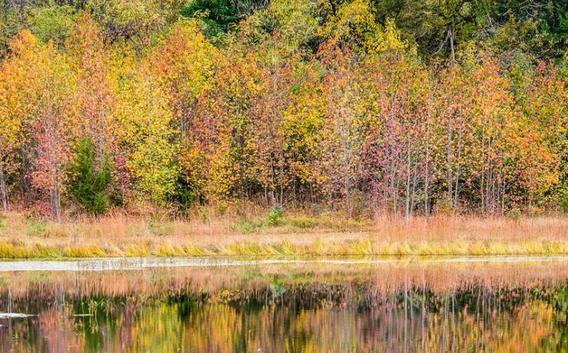
Invasive plants alter ecosystems and climate change may exacerbate their effects, including loss of habitat and ecosystem services.
Challenge: The effects of active forest management on invasive species is not well understood, may further exacerbate impacts, and lack of knowledge limits climate adaptation.
Principal Investigator(s):
- Hong He (University of Missouri)
Cooperator/Partner(s):
- Lauren Pile (U.S. Forest Service)
- Jacob Fraser (U.S. Forest Service)
- Thomas Bonnot (University of Missouri)
- Nathan Muenks (Missouri Department of Conservation)
Under shifting temperatures and precipitation patterns, Midwestern states are increasingly at risk from non-native invasive plants that are changing the composition, structure, and function of native forests. Non-native invasive plants impact the resilience and sustainability of forest communities by outcompeting native tree seedlings and diverse flowering plants, and by altering ecologically important patterns of natural processes like fire, wind, drought, and flooding. Land managers facing this threat are having to not only consider current non-native invasive plants within their landscapes but also future impacts with the expansion of these plants northward and westward under a changing climate, especially as non-native invasive plants may follow warming temperatures faster than many native plants due to their rapid growth, early reproductive maturity, and long distance seed dispersal, allowing them to quickly establish and colonize. Furthermore, active forest management, such as tree thinning and prescribed burning to promote ecologically and economically important oak seedlings, may further exacerbate invasions. However, our level of knowledge of these processes is limited and prevents managers from addressing them.
Given a better understanding and the right tools to provide guidance, forest managers would be able to make informed management decisions to reduce invasion risk in both the short and long term. This project brings together forest managers with research scientists to develop a landscape modeling tool under an existing modeling framework (LANDIS PRO) to document the establishment and spread of woody non-native invasive plants based on future climate scenarios and adapt forest management processes in the lower Midwest (Indiana, Illinois, and Missouri) to mitigate the negative effects of non-native invasive plants under climate change.
Read more from the CASC Project Explorer.
